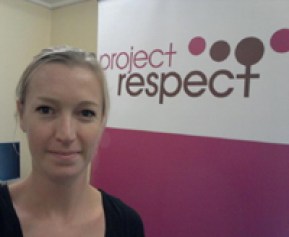By Kelly Hinton, Executive Director, Project Respect

Violence against women (VAW) is publicly condemned in our community, largely due to the incredible perseverance and hard work of women and collectives all over Australia, over the last 4 decades (and beyond). We have both Federal and State Action Plans to Reduce or Eliminate or Address Violence Against Women and Their Children. Violence is not just an issue for women who are disadvantaged. It is an issue that causes disadvantage for women, and further compounds existing disadvantage.
But what is violence against women? Are we covering everything? The United Nations definition in the Declaration on the Elimination of Violence against Women provides a definition of gender-based abuse, calling it “any act of gender-based violence that results in, or is likely to result in, physical, sexual or psychological harm or suffering to women, including threats of such acts, coercion or arbitrary deprivation of liberty, whether occurring in public or in private life”.
Violence against women has become a term interchangeable with family violence, or domestic violence. However there are other forms of VAW continuing to occur behind closed doors in Australia in a shroud of secrecy.
Sexual exploitation, violence against women in the sex industry (including in legalized brothels) and trafficking of women IS gender based violence – perpetrated by men, against women. It is happening in Australia, and must not be ignored.
The diversity and spectrum of the violence survived by (and specific to) women in the sex industry includes trafficking, sexual servitude, physical abuse, sexual abuse and rape, financial abuse (by brothel owners/managers/partners), emotional abuse and the list goes on. Why do we not hear about it?
Organizations such as Project Respect speak about these issues (largely to no avail) from the experiences of our staff (some of whom have been in the sex industry) and meeting hundreds of women in the legal sex industry of Victoria every year.
This violence is perpetuated against women who are already often at a disadvantage; stigmatized due to being in the sex industry, where the notion prevails that if a ‘client’ pays, they can do anything to a woman’s body.
Even in States of Australia where the sex industry has been legalized or decriminalized, the stigma for women in the sex industry remains. As does the violence. Like all other forms of VAW, the onus is on the victim to come forward and report to authorities. In addition to the obvious hurdles that this entails, the violence is often normalized in the sex industry and considered an occupational hazard. Some ‘clients’ pay more to inflict violence or coerce women to endure violent acts as part of a sexual fantasy. Some inflict violence without paying more. Then, in addition to the humiliation and shame of enduring such violence, we throw into the mix often a fear of police, fear of stigmatization and responses such as “you can’t get raped in a brothel” (which sadly, does happen) and isolation (as many women do not tell their families or friends they are in the sex industry). And so the violence is allowed to flourish.
Any government serious about addressing gender violence must address all forms of gender violence as the highest priority – no woman should ever have to endure emotional, physical, psychological, or sexual violence – and payment does not, and should not, make violence acceptable.
This was partially recognised in 2012 by the Victorian Government, who listed trafficking of women as an issue to be addressed in its Action Plan to Address Violence Against Women and Their Children. In the Federal Government’s National Plan to Reduce Violence Against Women and Their Children, ‘enforced prostitution’ is listed as a form of VAW.
Is this enough?
In the upcoming election, political parties must take a strong stand on all forms of violence against women, and making a true difference to those vulnerable and silenced people who are forced to endure violence as a result of being in the sex industry in our country. My vote goes to the party who will:
- Criminalise the intentional use and abuse of a trafficked woman in the sex industry
- Conduct research into the demand for trafficked women in the sex industry
- Conduct research into the institutional violence of the sex industry, and how other countries have addressed this form of VAW
- Adequately resource specialized programs such as Project Respect that support women who experience all forms of violence perpetrated in the sex industry (including trafficking)
- Develop a system of accredited NGOs assessing trafficked persons and referring for visa’s and support, not police
- Include trafficking and violence in the sex industry as part of the coverage of the national hotline 1800 RESPECT
- Provide visas and support for women who are trafficked, in recognition of the human rights abuse that has been allowed to occur in our country, regardless of their willingness to engage with the criminal justice process
This is an issue for all women in Australia to be aware of, and to take an interest in – and stand in solidarity against those who exploit. The message we are currently sending is violence against SOME women is acceptable. Violence against any woman, in any context, is unacceptable.
